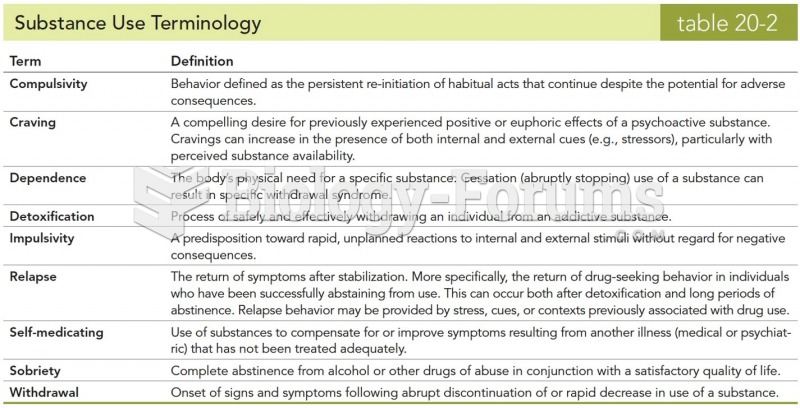|
|
|
Certain topical medications such as clotrimazole and betamethasone are not approved for use in children younger than 12 years of age. They must be used very cautiously, as directed by a doctor, to treat any child. Children have a much greater response to topical steroid medications.
There are more sensory neurons in the tongue than in any other part of the body.
Patients who cannot swallow may receive nutrition via a parenteral route—usually, a catheter is inserted through the chest into a large vein going into the heart.
Although the Roman numeral for the number 4 has always been taught to have been "IV," according to historians, the ancient Romans probably used "IIII" most of the time. This is partially backed up by the fact that early grandfather clocks displayed IIII for the number 4 instead of IV. Early clockmakers apparently thought that the IIII balanced out the VIII (used for the number 8) on the clock face and that it just looked better.
On average, someone in the United States has a stroke about every 40 seconds. This is about 795,000 people per year.
 Approximately 1 pound (0.45 kg) of ground elk meat formed into patties; note the relatively small fa
Approximately 1 pound (0.45 kg) of ground elk meat formed into patties; note the relatively small fa
 Drive-on ramps are dangerous to use. The wheels on the ground level must be chocked (blocked) to ...
Drive-on ramps are dangerous to use. The wheels on the ground level must be chocked (blocked) to ...





